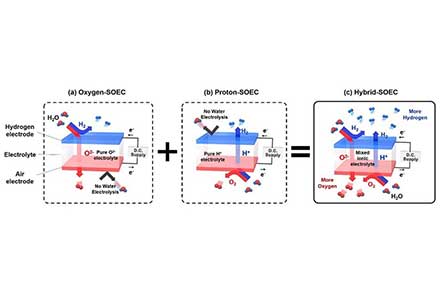Hydrogen is one of the most abundant elements on Earth and an exceptionally clean fuel source. As it makes its way into the fuel cells of electric cars, buses and heavy equipment, its widespread use is hampered by the costly gas separation process required to produce pure hydrogen. But that process could soon become more efficient and profitable thanks to the discovery of an international team of researchers, led in the United States by Drexel University. The group has discovered exceptionally efficient gas separation properties in a nanomaterial called MXene that could be incorporated into the membranes used to purify hydrogen.
While hydrogen is present in a wide variety of molecules and materials in nature, water, a combination of hydrogen and oxygen, the most important of which, does not exist naturally in its pure elemental form, that is, hydrogen itself same, on Earth.


